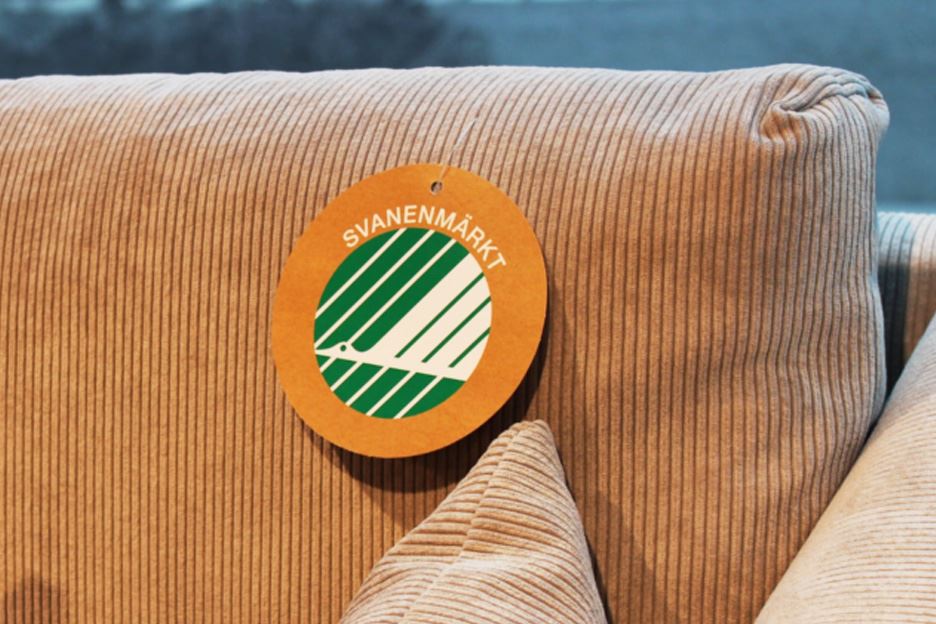How can the Nordic Swan Ecolabel be used in sustainability reporting (CSRD)?
The Nordic Swan Ecolabel's requirements help companies seeking to ecolabel their products reduce the environmental impact generated during production. The label imposes comprehensive and stringent environmental requirements that cover the product's entire life cycle.
The requirements are developed from a holistic perspective, considering climate, nature, chemicals, pollution, and the circular economy. The Nordic Swan Ecolabel's methodology for establishing environmental requirements provides insights that are well-suited for sustainability reporting.

How are the Nordic Swan Ecolabel's requirements developed?
MECO analysis
When developing the Nordic Swan Ecolabel's environmental requirements, a so-called MECO analysis is conducted. This analysis maps the environmental impact associated with materials, energy, chemicals, and other factors throughout the product's life cycle: from the extraction of raw materials from nature, through processing in manufacturing, the usage phase, and finally disposal or reuse.
The analysis identifies where in the life cycle the environmental burden is greatest, highlighting where measures to reduce it will have the most significant impact.
RPS analysis
Following the MECO analysis, an evaluation is performed to determine where and how the Nordic Swan Ecolabel can impose requirements on the specific product group to reduce its environmental burden. This is referred to as an RPS analysis:
- Relevance – The first step is to assess the environmental impact of the production of this product or service. This summarises the entire MECO analysis, with particular focus on energy and climate, chemical usage, biodiversity, resource utilisation, and waste.
- Potential – The next step is to evaluate the possibilities for reducing environmental impact. Can the Nordic Swan Ecolabel's requirements address an environmental challenge without causing a burden shift? Can stricter requirements be imposed than those set by authorities?
- Steerability – Finally, the feasibility of implementing the Nordic Swan Ecolabel's requirements is assessed to maximise their impact. Is there sufficient data available throughout the value chain?
The ESRS standards enable companies to identify impacts, risks, and opportunities (IRO – impact, risk, opportunity). The Nordic Swan Ecolabel's relevance analysis highlights both impacts and risks. The assessment of potential and steerability provides a basis for identifying opportunities.
What information can ecolabelling provide?
The Nordic Swan Ecolabel is a Type 1 ecolabel in accordance with ISO 14024. The methodology of Type 1 ecolabelling ensures that companies certifying their goods or services have data that can be used in CSRD reporting. This is particularly relevant to the two overarching ESRS standards: ESRS 1 – General Requirements and ESRS 2 – General Disclosures, as well as ESRS G1 – Responsible Business Conduct.
Additionally, the Nordic Swan Ecolabel can provide valuable insights for CSRD reporting in areas such as climate, chemical usage and pollution, water and marine resources, biodiversity, resource use, and circular economy. The label also sets requirements that support reporting on social standards and corporate governance, particularly for product groups where these aspects are especially relevant.
The Nordic Swan Ecolabel has analysed the criteria for cleaning services and how they can contribute to your reporting. Contact your advisor if you would like more information.
How can the Nordic Swan Ecolabel be used in stakeholder dialogue?
As part of the double materiality analysis, organisations must conduct a stakeholder dialogue. This dialogue will highlight new sustainability areas that should be assessed in the materiality analysis and help determine which areas and factors should be prioritised in reporting.
When Nordic Ecolabelling develops requirements for goods and services, we conduct market research and engage in dialogue with various stakeholders throughout the value chain of the specific product. Proposed requirements are shared in a broad, open consultation. The insights gained from these processes form a solid foundation for the Nordic Swan Ecolabel's criteria and can also be useful for companies looking to use the label in sustainability reporting.
The Nordic Swan Ecolabel's experts have extensive knowledge of the environmental issues affecting the industries they work with. They can provide valuable input to the double materiality analysis and are happy to participate in stakeholder dialogues with companies that offer ecolabelled goods and services.